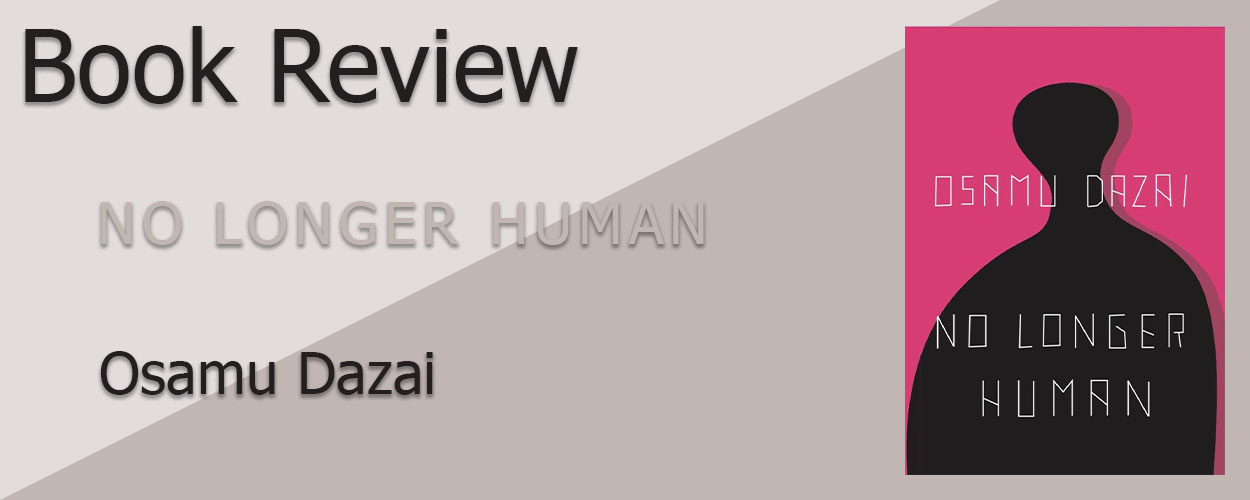

I really liked it
I only recently learned about this author, but I’ve heard so much about this book that I’ve been eager to read it. A close friend bought it for me as an early birthday present since she’s moving away soon.
Read: Jul. 2, 2025
Genre: Classic, Literary Fiction
Audience: Adult
Book contains: implied childhood sexual abuse, depression, implied sexual assault, mentioned pornography and prostitutes, suicide, death
Purchase a copy from Indigo.ca
The sorrowful tale of Yozo Oba, who lives seemingly an average life, but within is dealing with depressive thoughts and self-loathing. He does not understand society and feel disconnected—inhuman.
This book was exactly as I expected it to be and more! I wanted to read it specifically for a character study I’m doing, but I found myself also enjoying the perspective, which is both relatable but different to mine. I found myself sympathizing with the character of Yozo, even though I can’t empathize. That’s the mark of a well-written protagonist.
This book is written like the author has discovered a collection of notebooks and photographs from another person. It helps to distance the author (and narrator) from the life story being detailed here. My copy of the book began with a translator’s note, then jumped into a prologue written by the main narrator before delving into three “notebooks” written by Yozo Oba, the main character of this fictitious autobiography. Yozo details his life mostly in chronological order but mentions future instances a few times and jumps around a little bit as the context calls for it.
I was so excited that I read this book all in one day. I started the audiobook, which I found on Spotify, and listened at 1.5x speed. (I anticipated the heavy material and wanted to slow down a little bit, as I usually listen at 2x speed.) The reader was very good, but I noticed that a funny audio glitch happened at every section break, making the last word (or word fragment) repeat. I almost thought it was intentional, before the same thing happened in the outro at the very end.
What can I say about the characters in this novel? Yozo tells his story in such a depressive way, highlighting all the things he does wrong and how he wrongs others. It’s a supreme contrast to how, in the epilogue, the main narrator learns about Yozo from one of the other characters, a woman who knew Yozo, who describes him differently. Because the story is told from Yozo’s perspective, their aren’t many scenes that the reader gets of his clownish mask aside from how he talks about it; you get full view of his feelings about society and himself. Yozo is constantly being taken advantage of by the women in his life, and has such a complicated relationship with each of them that I won’t go into detail here, other than that it was well done and explored skillfully.
The main “relationship” in this novel is Yozo’s relationship with his own humanity. From a young age, he never experienced the sensation of hunger, thus sparking his thoughts that he is not human like the rest of his family. Furthermore, his inner turmoil spurred a habit of lying and playing the fool, despite his keen intelligence. His depression is a barrier preventing him from truly connecting with others, and thus he drowns himself in sex, alcohol, and (later) drugs. Still, I found a thread of hope lingering through each scene; it was clear that while Yozo struggled in his life, he was still trying for the most part, which I’m sure most people will skip over.
Dazai’s writing style was not nearly as hard-to-understand as I was expecting, for which I was grateful. I’m sure there were things that still went over my head, not only with the philosophy in general but with the cultural disconnect, but I feel like I understood quite a bit of what he was saying and how the character thinks and feels. It was emotional and reflective in a way that spoke to me.
As an autobiographical piece, there wasn’t really a main plot to follow aside from Yozo’s life. At the beginning, the narrator describes three photographs, so the reader gets an idea of the stages in Yozo’s life that will be covered, but while I enjoyed each new “chapter” in Yozo’s life, I was never in suspense for the next piece. It came naturally and smoothly.
This highly philosophical piece, though nihilistic and depressive in nature, was an excellent read, and I recommend it to introspective readers or those with an appreciation for quality literature. Just be warned about some of the more depressive or triggering content.
No Longer Human by Osamu Dazai
Notes from Underground by Fyodor Dostoevsky
Crime and Punishment by Fyodor Dostoevsky
Great Expectations by Charles Dickens
A Tale of Two Cities by Charles Dickens
Tigerpetal Press is a small book press dedicated to publishing local authors and poets.